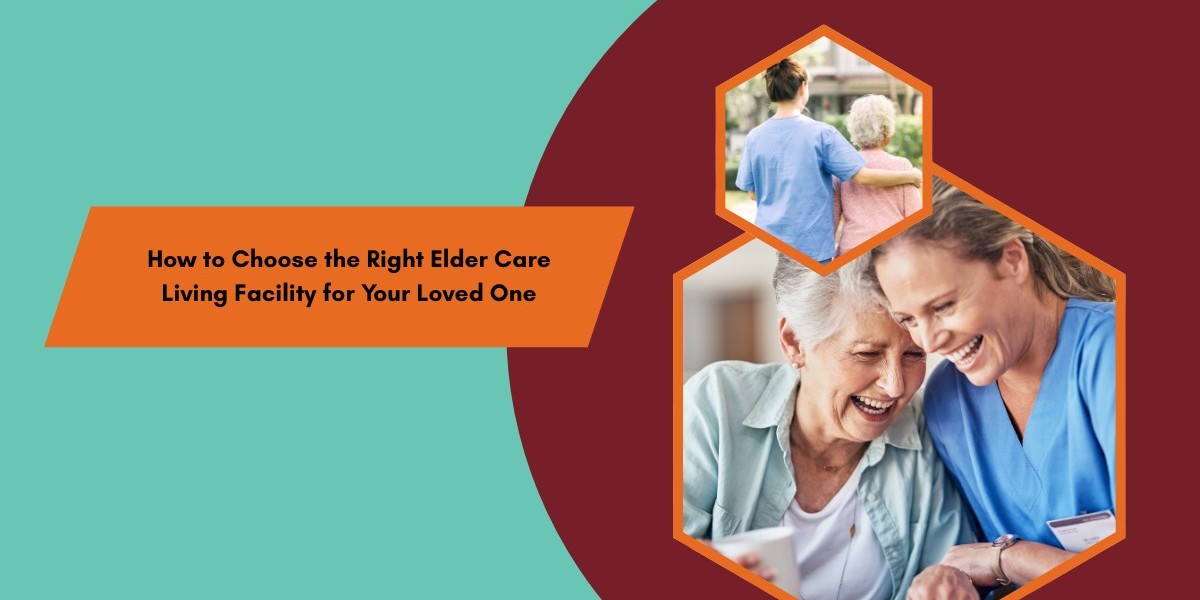Selecting the right living facility for an aging loved one is an important decision that requires careful thought and consideration. As health needs change, finding a suitable environment that offers appropriate care and support becomes essential. The choice of an elder care living facility can significantly impact their quality of life, so it’s vital to weigh all the factors involved. This guide will outline what you need to consider when choosing a facility for your loved one.
Assessing the Level of Care Required
The first step in choosing the right facility is assessing the level of care your loved one needs. Not all elder care facilities offer the same type of care. Some facilities provide independent living options for mostly self-sufficient seniors, while others offer assisted living or skilled nursing care for those who need help with daily activities or medical assistance.
Take into account your loved one’s physical health, mobility, and cognitive abilities. Do they need help with tasks like dressing, bathing, or medication management? Are they able to take care of themselves, or will they require 24-hour assistance? Understanding these needs will guide your decision in selecting a facility that offers the right services.
Location and Accessibility
Location is another key factor when selecting an elder care facility. Proximity to family members and friends is often important, as frequent visits can provide emotional support for both the resident and the family. A facility that is easy to access, either by car or public transportation, helps make visits more frequent and convenient.
Additionally, consider the local amenities that may be important, such as access to medical services, grocery stores, and recreational activities. These factors contribute to your loved one’s overall well-being and ease of living.
Understanding the Facility’s Reputation and Reviews
Before committing to an elder care living facility, research its reputation. Speak with current residents, family members, and healthcare professionals to gauge the level of satisfaction with the facility’s services. Reviews from online sources can provide insights into residents' experiences.
Look for facilities with long-standing positive reputations. Consider asking questions about staff turnover, the quality of care, and the general atmosphere within the community. Trustworthy facilities usually have experienced, caring staff members who are dedicated to ensuring resident satisfaction.
Costs and Payment Options
Financial considerations play a large role in the decision-making process when selecting an elder care living facility. The cost can vary significantly depending on the type of care provided, location, and amenities. Be sure to understand what is included in the facility’s pricing.
Many elder care facilities offer a variety of payment options, including private pay, long-term care insurance, and Medicaid. Make sure you are aware of all the fees involved, such as costs for medical services, room accommodations, and activities. Getting a clear breakdown of expenses will help you make an informed decision about the affordability of the facility.
Staff Qualifications and Availability
The quality of staff is crucial to the overall experience of residents in an elder care living facility. A highly trained and compassionate staff confirms that residents receive the care they need. Take time to inquire about staff qualifications, including certifications in healthcare, emergency response training, and other relevant skills.
Also, assess staff availability. How many staff members are available per resident? Is there a sufficient number of healthcare professionals on-site, including registered nurses, certified nursing assistants, and other specialists? A low staff-to-resident ratio often leads to better care and attention to individual needs.
Cleanliness and Maintenance
A clean, well-maintained environment is essential for the comfort and health of elderly residents. During your visit, observe the cleanliness of the common areas, restrooms, and resident rooms. Ask about the facility’s cleaning schedule and how they confirm a sanitary living environment.
Maintenance is another important aspect to consider. Confirm that the facility keeps up with repairs and that it is equipped to handle the needs of aging residents, such as wheelchair accessibility and other adjustments. The general upkeep of the facility reflects the overall commitment to the quality of care.
Social Activities and Resident Engagement
A thriving social life is an important component of any elder living facility. Loneliness can be a significant issue for elderly residents, so it’s essential to look for facilities that offer social activities and opportunities for engagement. These activities can range from group fitness classes and arts and crafts to movie nights, social hours, and organized outings.
When visiting potential facilities, ask about the types of activities available, how often they occur, and whether residents are encouraged to participate. An active social calendar can help improve the mental and emotional well-being of residents and encourage a positive community environment.
Health and Wellness Services
Elder care living facilities should prioritize the health and wellness of their residents. Ask about the availability of on-site healthcare services, such as physical therapy, occupational therapy, and specialized care for chronic conditions like dementia or diabetes.
In addition to medical care, wellness services like fitness programs, nutritious meal options, and mental health support can make a big difference in the overall quality of life. These services contribute to physical, emotional, and psychological well-being, and they help residents maintain their independence and dignity.
Flexibility and Future Care Needs
As time goes on, your loved one’s care needs may change. That’s why it’s important to choose a facility that offers flexibility in care services. Some facilities are designed to accommodate aging in place, meaning that residents can receive more intensive care as their needs increase.
When researching potential facilities, ask about the long-term care options available. Will the facility be able to provide higher levels of care if needed, such as memory care or hospice services? Understanding how the facility can accommodate changing needs is vital for long-term peace of mind.
Final Thoughts
Choosing the right living facility for your loved one is a process that involves careful thought and consideration of various factors. By focusing on the level of care required, location, costs, staff quality, and available services, you can make an informed decision that confirms your loved one’s well-being.
Remember, it’s not just about the facility itself but also about finding an environment where your loved one will feel supported, respected, and comfortable. Take the time to visit multiple facilities, ask questions, and observe the atmosphere. This will help you choose the facility that best suits their needs and lifestyle.








